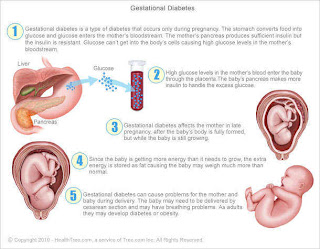The most important indicator of pregnancy is a late period, or a period that is not normal. Fatigue, hunger, nausea, backache, sore breasts, and food cravings are also early indicators of pregnancy. If you are sexually active and have these symptoms it is important to get a pregnancy test early.
About Symptoms Of Pregnancy
Though everyone's pregnancy is different,some of the earliest symptoms of pregnancy might include the following:
*Sore breasts
*Fatigue
*Spotting (menstrual blood between periods)
*Abdominal cramps
*Nausea
*Headaches
*Food cravings
*Slight fever
As many of these symptoms can be associated with other things, it is important to get a pregnancy test if you are sexually active and have any of these symptoms and your period is late.
Know if Pregnant
How do you know if you're pregnant? Well, one of the first indicators is that you will miss your period. Other indicators include implantation bleeding (when a fertilized egg attaches to the wall of the uterus), cramping, morning sickness, headaches and exhaustion, sore breasts, bloating, and, of course, a positive pregnancy test.
The signs of early pregnancy vary from woman to woman. While some women may experience many symptoms, others may experience none or very few. Also, women experience these symptoms with varying degrees of intensity. It is estimated that only 50% of women experience morning sickness (which can really happen at any time during the day, not only in the morning), and there are some women who continue to have spotty periods throughout their entire pregnancy.
Knowing if you're pregnant might be easier if it is a planned pregnancy because you are watching for the signs. However, a woman who has an unexpected pregnancy may confuse sore breasts, headaches, and implantation bleeding to be side effects of her menstruation cycle. That is why the best indicator of pregnancy is a pregnancy test.
 |
| Gestational Diabetes |
About Symptoms Of Pregnancy
Though everyone's pregnancy is different,some of the earliest symptoms of pregnancy might include the following:
*Sore breasts
*Fatigue
*Spotting (menstrual blood between periods)
*Abdominal cramps
*Nausea
*Headaches
*Food cravings
*Slight fever
As many of these symptoms can be associated with other things, it is important to get a pregnancy test if you are sexually active and have any of these symptoms and your period is late.
Know if Pregnant
How do you know if you're pregnant? Well, one of the first indicators is that you will miss your period. Other indicators include implantation bleeding (when a fertilized egg attaches to the wall of the uterus), cramping, morning sickness, headaches and exhaustion, sore breasts, bloating, and, of course, a positive pregnancy test.
The signs of early pregnancy vary from woman to woman. While some women may experience many symptoms, others may experience none or very few. Also, women experience these symptoms with varying degrees of intensity. It is estimated that only 50% of women experience morning sickness (which can really happen at any time during the day, not only in the morning), and there are some women who continue to have spotty periods throughout their entire pregnancy.
Knowing if you're pregnant might be easier if it is a planned pregnancy because you are watching for the signs. However, a woman who has an unexpected pregnancy may confuse sore breasts, headaches, and implantation bleeding to be side effects of her menstruation cycle. That is why the best indicator of pregnancy is a pregnancy test.





